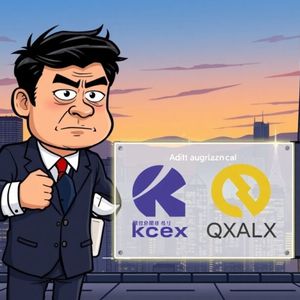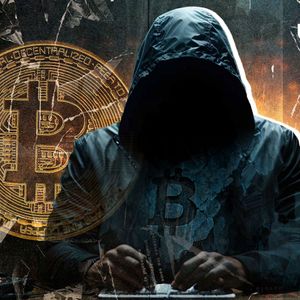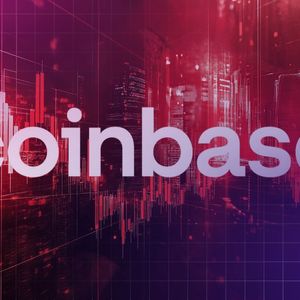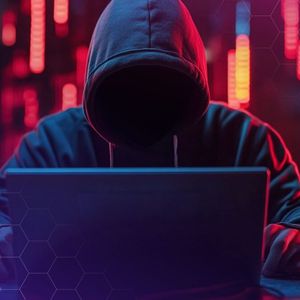BitcoinWorld Urgent Alert: South Korean Crypto Exchanges Face Regulatory Crackdown The dynamic world of cryptocurrency is a hotbed of innovation, yet it consistently grapples with significant regulatory hurdles. Recently, a pivotal development has reshaped the landscape for South Korean crypto exchanges , highlighting the nation’s stringent approach to digital asset governance. The Financial Intelligence Unit (FIU) has initiated decisive action against platforms operating outside established legal frameworks. This move sends an unequivocal message about the critical importance of regulatory compliance in the crypto space. What Prompted the Crackdown on Unregistered Crypto Exchanges? South Korea’s Financial Intelligence Unit (FIU), operating under the Financial Services Commission (FSC), recently identified two specific unregistered crypto exchanges : KCEX and QXALX. These platforms were found to be operating illegally within the country, failing to adhere to mandatory registration requirements. The FIU swiftly reported these non-compliant entities to law enforcement, signaling a zero-tolerance policy for illicit operations. This action underscores the regulator’s unwavering commitment to enforcing robust compliance rules across all crypto-related businesses. Furthermore, the FIU announced plans to block access to the websites and mobile applications of KCEX and QXALX within South Korea. This proactive measure effectively prevents local users from engaging with these non-compliant services, safeguarding them from potential risks associated with unregistered crypto exchanges . Why is Crypto Regulation in South Korea So Vital? South Korea has consistently pursued a comprehensive and robust regulatory framework for its digital asset market. The nation’s approach to crypto regulation South Korea is widely regarded as one of the most stringent globally. This strictness is a direct response to past incidents involving illicit financial activities and a strategic effort to cultivate a secure and transparent digital asset environment. The FIU’s recent actions serve as a powerful deterrent. They emphatically remind both domestic and overseas crypto exchanges that operating without proper registration carries severe legal and operational consequences. It reinforces the principle that simply being based outside South Korea does not exempt an exchange from adhering to local laws when serving Korean citizens or residents. Key aspects of South Korea’s regulatory stance include: Investor Protection: Safeguarding individuals from scams, fraud, and financial losses. Anti-Money Laundering (AML): Preventing the use of cryptocurrencies for illegal financing. Market Stability: Ensuring orderly and fair market operations within the realm of South Korean crypto exchanges . What Are the Risks of Using Unregistered Overseas Crypto Exchanges? For users in South Korea, this development brings into sharp focus the critical importance of verifying the registration status of any platform they utilize. Engaging with unregistered overseas crypto exchanges can expose individuals to a multitude of significant risks. These include: Loss of Funds: No legal recourse if the platform collapses or absconds with assets. Lack of Consumer Protection: Absence of regulatory oversight means no avenues for dispute resolution or compensation. Involvement in Illegal Activities: Unwittingly participating in money laundering or other illicit financial schemes. Data Security Risks: Non-compliant exchanges may have weaker cybersecurity protocols, exposing personal data. Users are strongly advised to prioritize platforms that are fully compliant with local regulations. This diligence ensures their investments receive the protection afforded by law. The FIU’s move aims to shield the public from fraudulent schemes and unregulated operations, thereby making the digital asset space considerably safer for everyone. How Does the Financial Intelligence Unit Bolster Market Integrity? The Financial Intelligence Unit (FIU) is a cornerstone in the fight against financial crimes, including money laundering and terrorist financing. By meticulously identifying and reporting non-compliant entities, the FIU actively protects both the broader financial system and individual investors. This proactive enforcement mechanism ensures that only legitimate and transparent entities are permitted to operate within the South Korean market. It establishes a robust precedent for other jurisdictions grappling with similar challenges posed by cross-border crypto operations. The continuous vigilance and decisive actions of the Financial Intelligence Unit are absolutely vital for maintaining integrity and trust in the rapidly evolving cryptocurrency landscape, especially concerning South Korean crypto exchanges . In summary, South Korea’s latest regulatory action against unregistered overseas crypto exchanges sends a clear, powerful message: compliance is not merely an option, but a non-negotiable prerequisite. This significant move reinforces the nation’s unwavering commitment to fostering a secure, transparent, and regulated environment for digital assets. Moreover, it serves as a crucial reminder for crypto users worldwide to exercise due diligence and always prioritize regulated platforms to safeguard their valuable investments. Frequently Asked Questions (FAQs) 1. What is the Financial Intelligence Unit (FIU) and its role in crypto regulation? The FIU is a government agency under South Korea’s Financial Services Commission (FSC) responsible for combating money laundering and terrorist financing. In crypto, its role involves identifying and reporting illegal operations by unregistered crypto exchanges to ensure market integrity and investor protection. 2. Which specific exchanges were reported by the FIU in South Korea? The Financial Intelligence Unit reported two specific unregistered crypto exchanges : KCEX and QXALX. These platforms were identified for operating illegally within South Korea without proper registration. 3. Why are unregistered crypto exchanges considered risky for users? Using unregistered crypto exchanges carries significant risks, including potential loss of funds due to lack of legal recourse, absence of consumer protection, vulnerability to data breaches, and the risk of unwittingly participating in illicit financial activities. These platforms operate outside the framework of crypto regulation South Korea . 4. How can users verify an exchange’s registration status in South Korea? Users should check the official website of South Korea’s Financial Services Commission (FSC) or the Financial Intelligence Unit (FIU) for a list of registered and licensed virtual asset service providers (VASPs). This ensures they are using compliant South Korean crypto exchanges . 5. What are the consequences for unregistered overseas crypto exchanges operating in South Korea? Unregistered overseas crypto exchanges operating in South Korea face severe consequences, including being reported to law enforcement, having their websites and mobile apps blocked within the country, and potential legal prosecution. This demonstrates the strict enforcement of crypto regulation South Korea . If you found this article insightful, please consider sharing it with your network on social media to help raise awareness about crucial crypto regulatory developments! To learn more about the latest crypto market trends, explore our article on key developments shaping global crypto regulation. This post Urgent Alert: South Korean Crypto Exchanges Face Regulatory Crackdown first appeared on BitcoinWorld and is written by Editorial Team
















